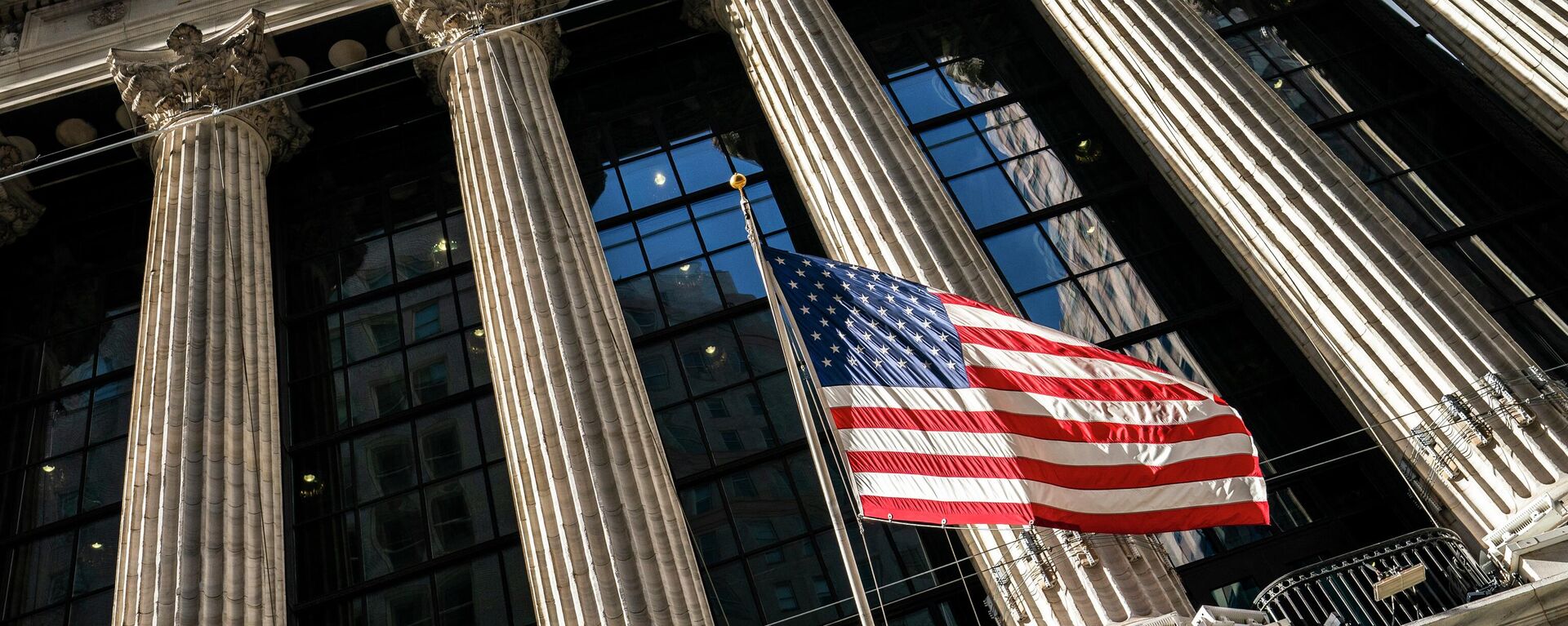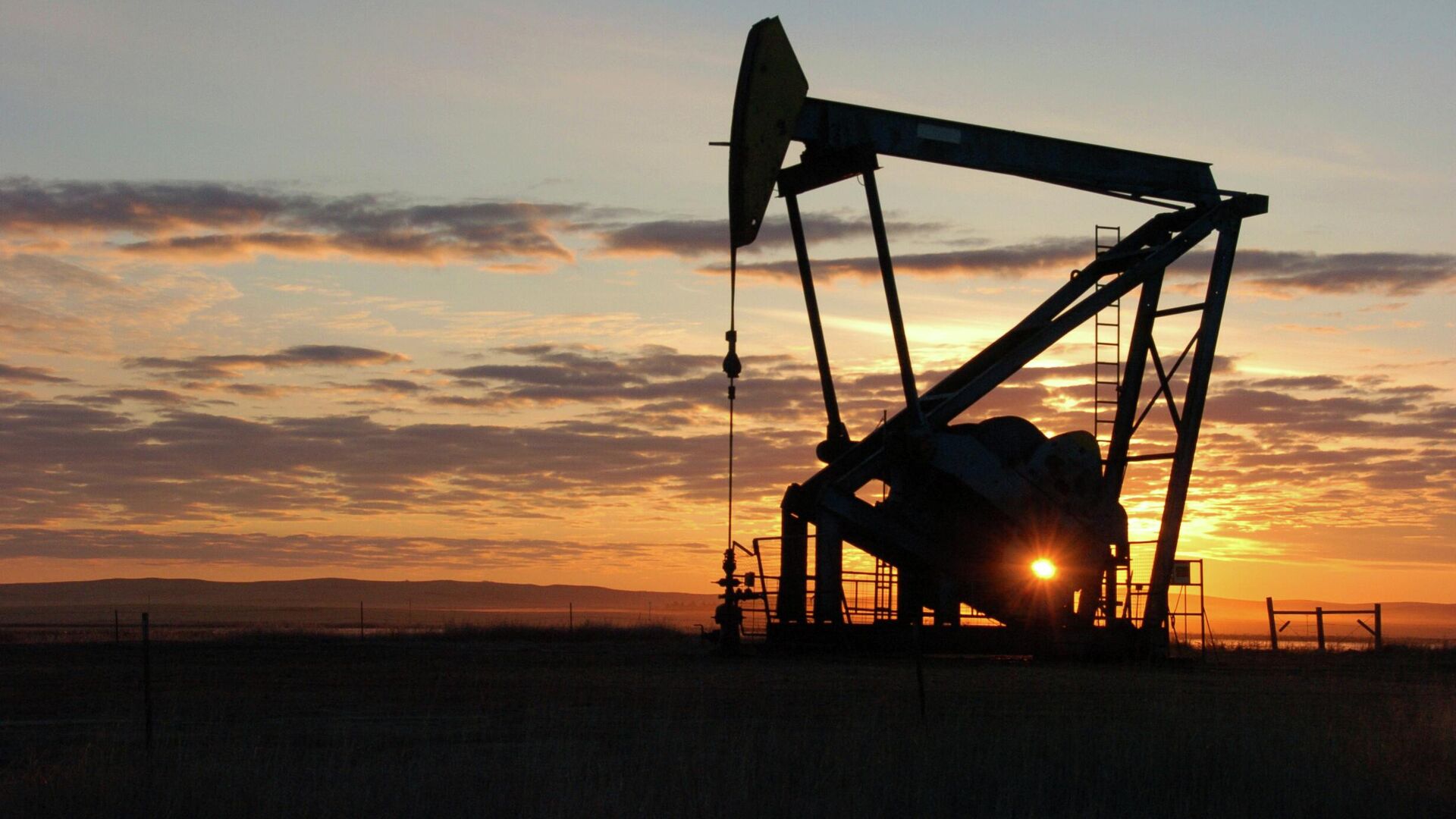https://sputnikglobe.com/20230104/oil-prices-down-almost-10-since-start-of-2023-from-global-recession-1106044653.html
Oil Prices Down Almost 10% Since Start of 2023 From Global Recession
Oil Prices Down Almost 10% Since Start of 2023 From Global Recession
Sputnik International
NEW YORK (Sputnik) - Crude prices are down almost 10% since trading began for 2023, amid fears about a global recession and the worsening coronavirus situation... 04.01.2023, Sputnik International
2023-01-04T22:01+0000
2023-01-04T22:01+0000
2023-01-04T21:56+0000
economy
us
oil prices
global recession
crude
https://cdn1.img.sputnikglobe.com/img/07e6/04/04/1094482814_0:98:2464:1484_1920x0_80_0_0_22aa77cc03eb20d7c9e073ac3b945a91.jpg
"Oil prices have tumbled … [on] the uncertainty [in] near-term economic prospects for China amid surging COVID cases," Ed Moya, analyst at online trading platform OANDA, said. "While reliable data is seemingly hard to come by, the view appears to be that there'll be significant disruption in the coming months." New York-traded West Texas Intermediate crude (WTI) settled Wednesday’s trade down $4.09, or 5.3%, at $72.84 per barrel, after dropping to a three-week low of $72.77 during the session. The US crude benchmark is down almost 10% in just two days of trading since the start of the year, after finishing 2022 up nearly 7%. London-traded Brent crude settled down $4.26, or 5.2%,at $77.84 per barrel after hitting a three-week low of $77.74 earlier on Wednesday. Brent, which acts as the global crude benchmark, is down 9.4% from just two days of trading this year, after finishing 2022 up 10.5%. Worries about a global recession have intensified since the new year began, pummeling crude prices as top oil importer China faced increased challenges in containing its COVID-19 contagion. Growth worries are not exactly new since the world began recovering from the worst of the coronavirus pandemic, with each country’s progress determined by its relative immunity from the virus and inherent economic strength. In the case of China, hundreds of millions of people are potentially estimated to be at risk from coronavirus infections before herd immunity is achieved in the world’s number two economy. Thus, China’s zeal to go from a zero-COVID policy to one where officials are now exhorting its people to declare a "final victory" over the virus has raised an alarm across markets. Concerns over Beijing’s actions have been accentuated after the International Monetary Fund began 2023 with a tough warning that China and the world’s two other growth engines - the United States and Europe - were all in slowdown mode. Data on Tuesday showed that Chinese manufacturing activity shrank for a fifth straight month in December, as the country grappled with an unprecedented spike in coronavirus cases. China has also increased export quotas for refined oil products in the first batch for 2023, signaling expectations of poor domestic demand. Adding to the market’s bearishness were signs that top oil exporter Saudi Arabia could further cut prices to Asia for its flagship Arab Light crude grade in February, after the pricing for that hit a 10-month low this month, reflecting concerns of oversupply, media reports said.
https://sputnikglobe.com/20230104/wall-street-in-anemic-open-to-2023-amid-recession-warning-pending-us-jobs-report-1106022522.html
Sputnik International
feedback@sputniknews.com
+74956456601
MIA „Rossiya Segodnya“
2023
Sputnik International
feedback@sputniknews.com
+74956456601
MIA „Rossiya Segodnya“
News
en_EN
Sputnik International
feedback@sputniknews.com
+74956456601
MIA „Rossiya Segodnya“
Sputnik International
feedback@sputniknews.com
+74956456601
MIA „Rossiya Segodnya“
us, oil prices, global recession, crude
us, oil prices, global recession, crude
Oil Prices Down Almost 10% Since Start of 2023 From Global Recession
NEW YORK (Sputnik) - Crude prices are down almost 10% since trading began for 2023, amid fears about a global recession and the worsening coronavirus situation in top oil importer China.
"Oil prices have tumbled … [on] the uncertainty [in] near-term economic prospects for China amid surging COVID cases," Ed Moya, analyst at online trading platform OANDA, said. "While reliable data is seemingly hard to come by, the view appears to be that there'll be significant disruption in the coming months."
New York-traded West Texas Intermediate crude (WTI) settled Wednesday’s trade down $4.09, or 5.3%, at $72.84 per barrel, after dropping to a three-week low of $72.77 during the session. The US crude benchmark is down almost 10% in just two days of trading since the start of the year, after finishing 2022 up nearly 7%.
London-traded Brent crude settled down $4.26, or 5.2%,at $77.84 per barrel after hitting a three-week low of $77.74 earlier on Wednesday. Brent, which acts as the global crude benchmark, is down 9.4% from just two days of trading this year, after finishing 2022 up 10.5%.
Worries about a global recession have intensified since the new year began, pummeling crude prices as top oil importer China faced increased challenges in containing its COVID-19 contagion.
Growth worries are not exactly new since the world began recovering from the worst of the coronavirus pandemic, with each country’s progress determined by its relative immunity from the virus and inherent economic strength.
In the case of China, hundreds of millions of people are potentially estimated to be at risk from coronavirus infections before herd immunity is achieved in the world’s number two economy. Thus, China’s zeal to go from a zero-COVID policy to one where officials are now exhorting its people to declare a "final victory" over the virus has raised an alarm across markets.

4 January 2023, 00:57 GMT
Concerns over Beijing’s actions have been accentuated after the International Monetary Fund began 2023 with a tough warning that China and the world’s two other growth engines - the United States and Europe - were all in slowdown mode. Data on Tuesday showed that Chinese manufacturing activity shrank for a fifth straight month in December, as the country grappled with an unprecedented spike in coronavirus cases.
China has also increased export quotas for refined oil products in the first batch for 2023, signaling expectations of poor domestic demand.
Adding to the market’s bearishness were signs that top oil exporter Saudi Arabia could further cut prices to Asia for its flagship Arab Light crude grade in February, after the pricing for that hit a 10-month low this month, reflecting concerns of oversupply, media reports said.



